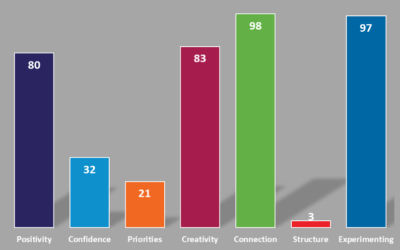Resilience Alliance Blog
Resilience is a Verb
As a long-time student of resilience, I began my exploration in a time when researchers were exploring what made some people better able to deal with adversity than others. This early work tended to frame resilience as a unitary quality or trait that people possess....
Replenishing Energy During Extended Challenges: Charging Your Battery
We use physical, mental, emotional, and spiritual energy to deal with the range of challenges we encounter—both those that come to us and those we choose to take on. Each of us only has one energy supply, and it has to stretch to cover our challenges at home, at work,...
Designing Your Personal Emergency Drill
When I originally wrote this post a few years ago, one of the hot news topics was the safe landing of a Southwest Airlines flight that had an engine explode in mid-air, putting a hole in the side of the plane and creating a serious emergency that involved the death of...
What If I’m Not Feeling Resilient?
Resilience is the ability to deal with high levels of disruption, difficulty, or challenge while maintaining or regaining a sense of well-being. Although there is a lot of emphasis on the topic these days, I believe that many people don't feel resilient a lot of the...
Evaluating Energy Demands for an Initiative: A 10-Question Diagnostic for Change Leaders
Experienced leaders know that people have a finite supply of energy and that in the face of too many energy demands people begin to lose productive capability and may display unproductive behaviors related to stress and overload. They also know that energy levels rise when people feel engaged and involved and fall when people feel controlled and victimized. As you prepare to introduce a new initiative to a group of people that will require them to make changes in their mindsets and/or behaviors, it can be helpful to estimate energy demands and match them against the group’s available energy.
Seven Resilience Muscles
What is resilience? Based on a great deal of research and observation of people going through change, we have identified a set of characteristics that help people use their adaptation energy more effectively. Think of these characteristics as “change muscles.” We believe that everyone has the ability to apply and develop each one. Just as certain physical muscles are stronger in some people than others, people differ in the strength of their resilience muscles. And, just as regular exercise will strengthen physical muscles, so resilience muscles can be strengthened through practice. When a change muscle is weak, it can certainly still be used, but the person must apply more effort to get the same result as a person who has developed greater strength in that area.
Subscribe
Nourish your thinking on resilience, change,
and well-being! Linda's newsletters are
thought-provoking and informative.






